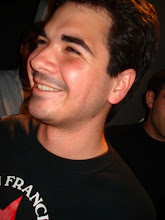Politics, Emotion, and Religion
I'm ashamed to admit it, but my overwhelming emotion since hearing about the scandal with Rep. Mark Foley (R-FL16) has been glee. A member of Congress sends inappropriate emails and ims to his 16-year-old pages and I'm happy about it? Yep. Because the fact that it appears that Republican leaders like Hastert and Boehner knew about Foley's behavior for over a year and did not act on it makes it that much more likely that voters will hand control of the House over to the Democrats in November, and I am very excited about that possibility.
In my defense, an Emory University study says that it may not be my fault: when committed partisans are shown contradictory statements by a candidate (say, Kerry or Bush), the emotional portion of the brain is activated, not the rational portion. As Sam Seaborn said on West Wing, "Guys like you and me are quantifiably a little nuts." In fact, it was on West Wing that I first heard about that study, and it turn out to actually be true. You can read an article on it here or a draft of the actual paper here.
At what point do we go past good intentions and civic responsibility and move into the realm of blind partisan positioning? More importantly, how do we (I) go back? As a country, we managed to largely put partisanship aside in the immediate aftermath of 9/11, but it didn't last very long. Is that the only thing that can bring us together: disaster? Well, we didn't see that in the wake of Hurricane Katrina, so maybe it only works if there is a common enemy we can oppose and blame for the tragedy.
Partisanship is so ingrained in me that even as I type this post, in my head there's a voice blaming the polarization on those evil conservative nutjobs. But I know that there are plenty of people out there who share my good intentions and still identify as Republicans. More and more, find that the issues where I am completely unmoved by opposing arguments are the ones where the opposing side is being championed by religious fanatics (er, that is, people whose political actions are motivated mostly or entirely by religious beliefs): things like gay marriage and family planning. In some areas, like education and gun control, I find myself willing to listen to the opposing side because we both want the same outcomes (improved education, safer communities), we just differ in opinion over the most effective ways to get there.
What we really need to do is mute the influence of the religious fanatics in this country. I'm not against religion or religious people, but I think that religious zeal is what threatens to literally destroy the world, as Christian and Muslim fanatics push their societies into increasing conflict to the detriment of all the other people who simply want to live their lives and leave their little corner of the world a better place for their children. I don't like most horror movies, but the movie trailer that scares me the most is the one for the documentary Jesus Camp. If you haven't yet, watch it but imagine how you and others would react if all references to Jesus and Christianity were replaced with Mohammad and Islam:
I just hope that somewhere after the first 50 pages of The Tipping Point Malcolm Gladwell gives me hope for an end to the global pandemic of religious extremism.
Labels: Mark Foley, partisanship, religion


1 Comments:
Very interesting post. I reacted with anger and immediately found myself wondering how I would feel if Foley had been a democrat. Most likely I'd be sad, although I'm certain I'd still be angry that he's blaming his behavior on alcoholism and "related behavioral problems."
Post a Comment
<< Home